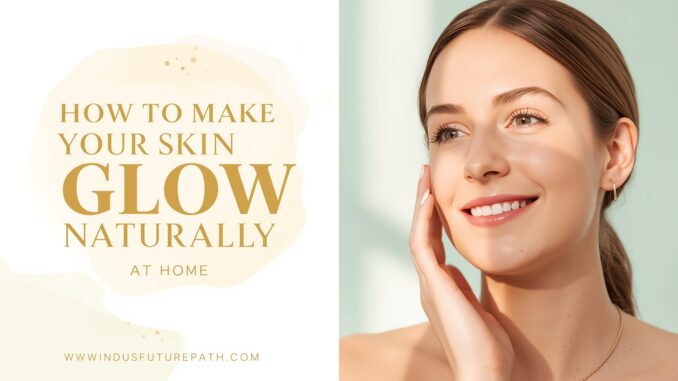
Healthy, glowing skin is something people of every age admire and desire. It is not only about beauty but also about overall wellness. In many cultures, glowing skin is considered a symbol of vitality and good health. Even today, when cosmetic products and filters are widely available, natural radiance has its own charm because it shows that the skin is truly nourished from the inside.People often assume that glowing skin means flawless skin without any pores, marks, or lines. But that is not true. Real skin always has some imperfections. What makes it beautiful is how well it is cared for, how fresh it looks, and how hydrated it feels. A person with a few small pimples can still look radiant if the skin is healthy overall. On the other hand, someone with no blemishes but dehydrated and dull skin may not appear glowing.I remember a friend who always struggled with acne during her college years. She used to try every cream available in the market, from expensive branded serums to herbal remedies, but nothing seemed to work for her. The real change came when she started focusing on her daily routine. She began drinking more water, avoided sugary snacks, and slept on time instead of staying up till 2 a.m. Within a few months, her skin looked much brighter and calmer. That experience taught me that glowing skin is not a quick-fix result of products but a reflection of consistent care and lifestyle choices.
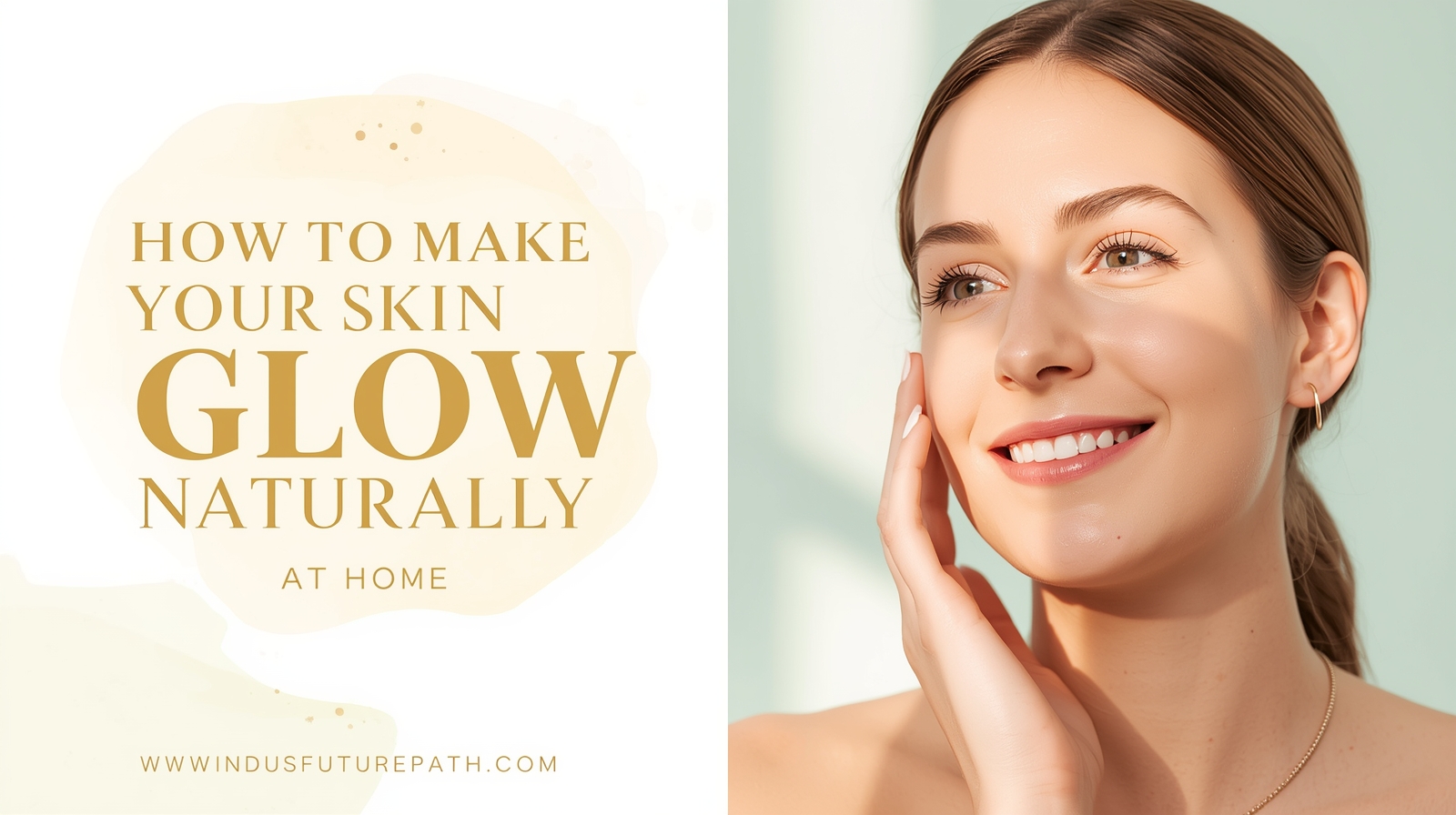
What Does Glowing Skin Really Mean?
When people talk about glowing skin, they often mean skin that looks smooth, even, and hydrated. It is the kind of skin that looks “awake” and fresh instead of dull or tired. The glow comes from natural light reflecting on healthy skin cells. For some people, this glow appears like a soft shine, while for others it may show as a uniform tone without patches or dryness.Glowing skin is not about looking like a magazine model. Healthy skin can have pores, fine lines, freckles, or even the occasional blemish. These features are part of being human. What matters is that the skin feels comfortable, balanced, and cared for.For example, if you meet two people—one who just came back from a stressful week with little sleep, and another who spent the same week eating well, exercising, and resting—you will notice the difference instantly. The second person’s skin will naturally look fresher, not because they used better makeup, but because their body had time to repair itself.
What Affects Skin Health?
Several factors play a role in how skin looks and feels. Some of them are out of our control, while others can be managed through choices and habits.Genetics often decide the basic nature of skin. Some people are born with oily skin, while others have dry or combination skin. A person with a family history of eczema may be more prone to dryness. Hormonal changes are another strong influence. Teenagers going through puberty often deal with breakouts because their oil glands become more active. Women may notice changes during pregnancy or menopause when hormones fluctuate.Health conditions also show up on the skin. For example, thyroid disorders sometimes cause dryness, while certain medications can make the skin sensitive or prone to acne. The environment has its impact as well. Constant exposure to sunlight without protection can cause premature aging. People living in polluted cities often struggle with dullness and clogged pores.But perhaps the most powerful factors are lifestyle habits. What we eat, how much we sleep, whether we smoke, and how we manage stress—all of these directly influence the way skin behaves. I once knew a man who smoked regularly and stayed up late almost every night. Although he was only in his late twenties, his skin looked tired and had fine lines around the mouth. Another friend of the same age, who lived a calmer routine and exercised often, looked much fresher. This shows that small choices add up over time.
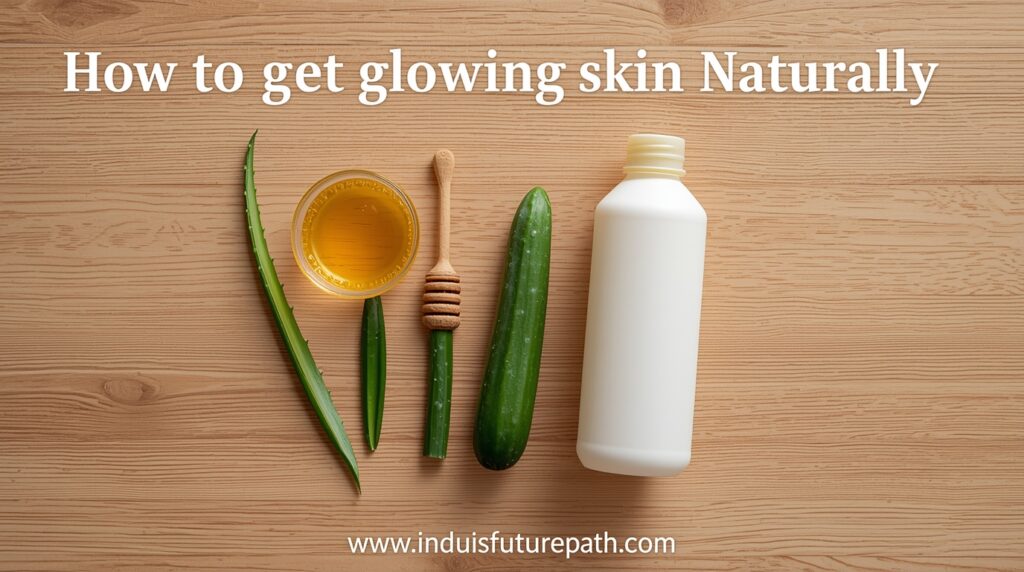
Daily Skincare Routine for Radiant Skin
The journey to glowing skin often starts with a daily routine. Many people feel confused because of the countless products in the market, each promising miracles. But dermatologists agree that skincare does not need to be complicated or expensive. A few consistent steps done properly can make more difference than a cupboard full of creams.Cleansing is the foundation. Our skin collects dirt, sweat, and oil throughout the day. If these remain on the skin, they block pores and cause dullness. Washing the face with a gentle cleanser morning and evening is enough for most people. Harsh soaps should be avoided because they strip away natural oils. I remember trying a strong face wash once because the advertisement claimed it removes every trace of oil. It left my skin feeling tight and itchy. Switching back to a mild cleanser immediately made my skin calmer.Moisturizing comes next. Many people with oily skin believe they do not need moisturizer, but that is a myth. Even oily skin requires hydration. Without it, the skin may produce even more oil to compensate. Light, water-based lotions suit oily skin, while creamier moisturizers work better for dry types. Applying moisturizer on slightly damp skin after washing helps seal in water.Sun protection is non-negotiable. The sun’s ultraviolet rays are the leading cause of early wrinkles, sunspots, and uneven tone. A broad-spectrum sunscreen with SPF 30 or higher should be applied every morning, whether it is sunny or cloudy. People often think sunscreen is only for beach days, but even daily exposure while walking to work can harm the skin in the long run. A cousin of mine who never used sunscreen in her twenties now regrets it, as she developed visible sunspots in her thirties.Some people also use exfoliants or masks once or twice a week. Gentle exfoliation helps remove dead skin cells, revealing fresher skin underneath. However, overdoing it can irritate the skin, especially for people with sensitive types.
Nutrition and Foods That Support Skin
There is a famous saying: “You are what you eat.” Skin often reflects what is happening inside the body. Even the best creams will not help if the diet is poor. A balanced diet supplies vitamins, minerals, and antioxidants that keep skin cells healthy.Vitamin C, found in oranges, kiwi, and bell peppers, is essential for collagen production. Without enough collagen, skin becomes less firm and more prone to wrinkles. Vitamin E, present in almonds and sunflower seeds, acts like a shield against environmental damage. Vitamin A from sweet potatoes and carrots supports skin cell renewal. Omega-3 fatty acids from fish like salmon or from chia seeds keep the skin soft and hydrated.Zinc is another important mineral, often overlooked. Foods like chickpeas and pumpkin seeds provide zinc, which helps heal small wounds and reduce inflammation. People who lack zinc may notice slower healing of pimples or cuts.On the other hand, diets heavy in sugar, fried snacks, and processed foods often make skin problems worse. I once gave up sugary sodas for a month as an experiment. To my surprise, not only did I feel lighter, but my skin also looked less oily, and the small breakouts around my chin reduced. It proved to me that dietary changes show up directly on the face.
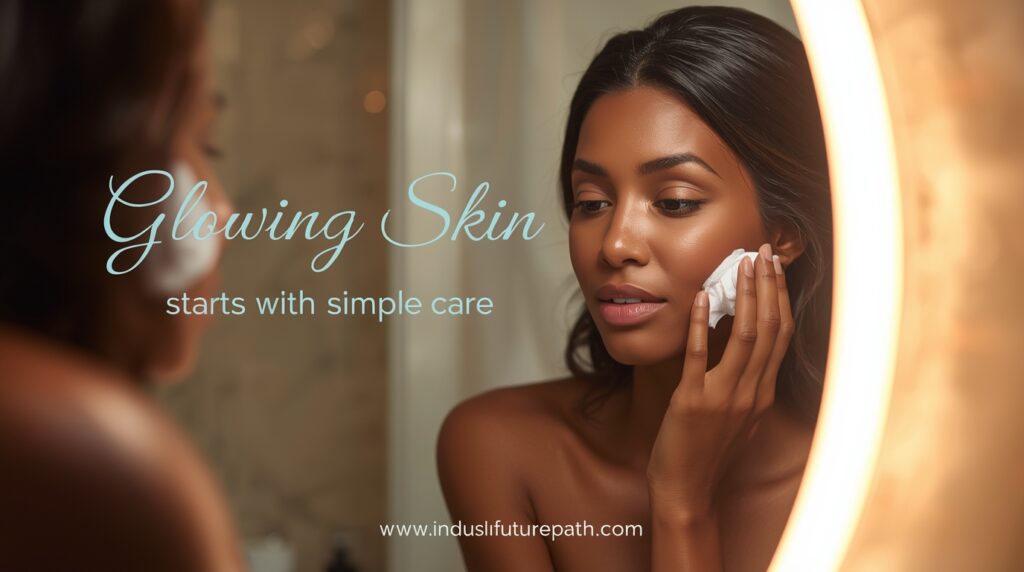
Lifestyle Habits That Transform Skin
Skincare products and healthy eating are important, but lifestyle plays an equally powerful role. Small daily habits build up and either support or damage skin health.Sleep is perhaps the most underestimated factor. During deep sleep, the body repairs tissues, including skin. People who constantly sleep late or get fewer than six hours often notice dark circles, dullness, and even breakouts. Once I stayed up late for several nights in a row during exam season. My skin looked noticeably rougher, with new pimples appearing on my forehead. After returning to a normal sleep routine, the skin gradually improved.Stress is another hidden culprit. When under pressure, the body releases hormones that increase oil production and inflammation. This is why some people get acne before an important event or during tough times. Managing stress through meditation, exercise, or simple breathing exercises can make a real difference.Smoking has a destructive impact on skin. It reduces blood flow, which means less oxygen reaches the skin. Over time, this makes skin dull and wrinkled. Alcohol also harms by dehydrating the body and worsening redness or irritation.Exercise, on the other hand, benefits the skin in multiple ways. It increases blood circulation, bringing nutrients to the skin surface. After a workout, the skin often looks more vibrant because of the improved blood flow. Regular activity also helps regulate hormones and reduce stress, both of which indirectly support clearer skin.Hydration should not be ignored. While drinking extra water does not magically erase wrinkles, staying well-hydrated keeps the skin elastic and prevents dryness. A glass of water in the morning and carrying a bottle throughout the day is a simple but effective habit.

Home Remedies and Natural Solutions
Many people like to try natural remedies at home, either to save money or to avoid harsh chemicals. Some of these remedies, when used wisely, can improve skin appearance.A simple turmeric mask made by mixing turmeric powder with yogurt or honey is popular in South Asia. Turmeric has anti-inflammatory properties, while yogurt provides lactic acid that gently exfoliates. Honey by itself is also an effective moisturizer. Applying a thin layer of raw honey on the face for 10–15 minutes makes the skin soft and glowing.Aloe vera gel is another household remedy. Fresh gel taken directly from the leaf can calm irritation and hydrate the skin. I often apply it in summer when my skin feels sunburnt. It provides instant relief. Rose water, used as a toner, helps refresh the skin and reduce mild redness.It is important, however, to test any remedy on a small patch of skin first to avoid allergic reactions. Natural does not always mean safe for everyone
When to See a Dermatologist
While home care and lifestyle changes help most people, there are times when professional help becomes necessary. Persistent acne that does not respond to routine care, sudden rashes, or unusual spots on the skin should never be ignored. A dermatologist can check if there is an underlying medical reason.I once knew a young woman who kept trying different creams for what she thought was normal acne. After months of frustration, she visited a dermatologist and found out she had a hormonal imbalance. With proper treatment, her skin improved within weeks. This shows that expert advice can save time and prevent long-term damage.
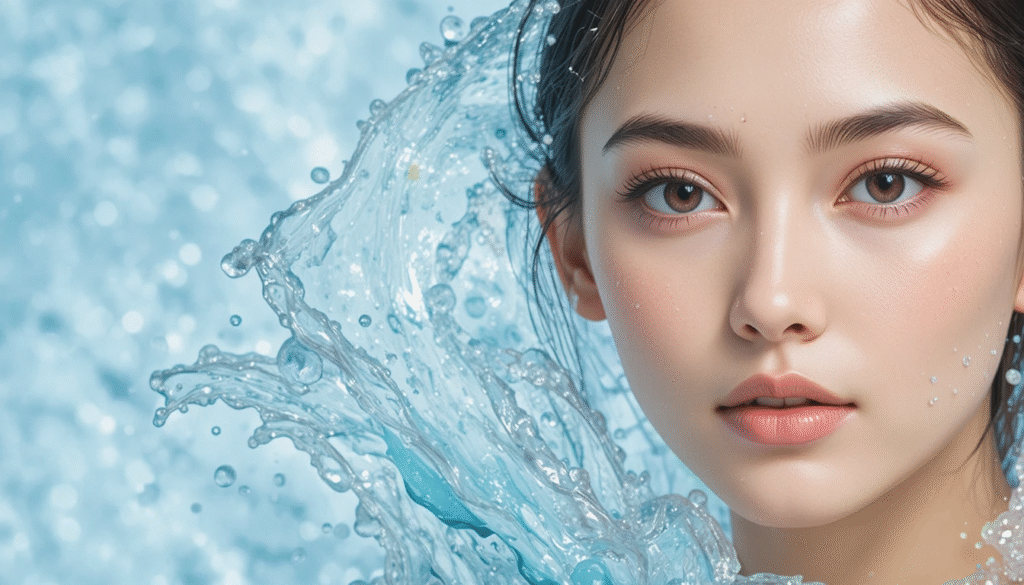
Common Myths and Facts About Glowing Skin
There are many myths surrounding skincare, and believing them often leads to disappointment. One common myth is that drinking excessive water alone makes the skin glow. While water is important, glow comes from a combination of good nutrition, protection, and rest. Another myth is that expensive products guarantee better results. In reality, even simple routines with affordable cleansers and moisturizers can be highly effective.Some people believe that only women need skincare. This is far from true. Men also face issues like dryness, sun damage, and breakouts. Skincare is simply health care for the body’s largest organ, and it applies to everyone.
How can I make my skin glow naturally at home?
Natural glow comes from a combination of habits. Eating fresh fruits and vegetables, staying hydrated, using a mild cleanser, applying moisturizer, and wearing sunscreen daily are key steps. Home remedies like honey masks or aloe vera gel can also add freshness.
Can glowing skin be achieved in a week?
Visible changes in just seven days may be limited, but some improvements are possible. For instance, reducing junk food, getting enough sleep, and applying a hydrating mask can make skin look fresher quickly. Long-term glow, however, requires consistent care over weeks and months.
Does stress really affect skin?
Yes, stress increases certain hormones that can cause breakouts or redness. Many people notice pimples during exams, work deadlines, or personal stress. Managing stress is as important as diet or skincare products.
Do men need a different routine for glowing skin?
Not necessarily. The basics cleansing, moisturizing, and sun protection are the same for everyone. However, men who shave regularly should take extra care to prevent irritation by using a good shaving cream and a clean razor.
Are natural remedies safer than chemical products?
Not always. While natural remedies like honey or aloe vera are usually safe, some ingredients can cause allergies. Chemical products, when dermatologically tested, can also be safe. It depends on individual skin type.

Leave a Reply